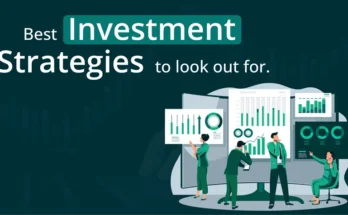The world of finance is as fast-evolving and far from just getting through crunching figures or interpreting balance sheets. Great insight from financial statements may not mean the art of finance; it means how the number is applied to guide strategic decisions, minimize risk, or create long-term value. This is where Chartered Financial Analysts come in. With specialized education and a profound understanding of financial markets, CFAs have a crucial role to play in defining the future of finance—and that means looking beyond the balance sheet and glimpsing the bigger picture.
The CFA: A Holistic Approach to Financial Expertise
The CFA designation is probably the most respected around the globe in finance and for very good reason. To date, the three levels of the CFA program include a comprehensive and rigorous curriculum in all matters from accounting and financial analysis to portfolio management, ethics, and behavioral finance. While the CFAs are extremely competent in financial statement analysis and comprehend most of the critical metrics pertinent to profitability, liquidity, and solvency, true value lies in the ability to interpret these numbers into a meaningful context.
This is not some CFA who, with a glance at a company’s balance sheet or income statement, imagines a pervasive economic, social, and geopolitical context. Rather, they put these financial figures in perspective of a more general economic, social, and geopolitical perspective. CFAs can make more strategic, forward-looking financial decisions by factoring in market dynamics, industry trends, and other psychological variables that drive investor behavior.
See: The Bigger Picture Beyond the Balance Sheet
A balance sheet can only present an instant view of a company’s financial condition. It does not paint the entire picture. This is where CFAs look at the numbers and try to understand all the factors that may influence future performances. Here’s how they do it to shape the future of finance
Economic Context: A CFA understands that no financial information can be seen in isolation. They take into account the macroeconomic factors that include interest rates, inflation, GDP growth, and geopolitical factors impacting the same financial health of a company or the market. These aggregates enable them to consider how the outside factors may impact the profitability and risk profiles of a company or affect long-term strategy formulating.
A CFA will utilize his or her skill set to make strategic, value-adding decisions for investors. He or she would be exposed to portfolio management-that is, investment decisions which take long-term objectives into account, often while balancing such fundamental trade-offs as the risk and reward potential of investments. This goes far beyond just making investment decisions on individual stocks or bonds; CFAs help map financial strategy from capital structure all the way up to mergers and acquisitions. They also are highly significant in corporate governance due to their efforts in making sure companies act for the betterment of shareholders and other stakeholders.
Risk Management. CFAs can manage risk very skillfully. When viewing financial data and linking this data to risk, they could formulate a strategy by which to reduce potential downsides while maximizing returns whether it comes from diversified portfolios or corporate risk management. CFAs know that effective finance is not merely about chasing returns; it’s more about navigating and mitigating risks, especially in volatile markets.
Behavioral Finance: CFA program coaching on the basis of understanding how psychological factors affect investment decisions in individuals CFAs are trained to recognize the mental and cognitive biases that can distort market behavior by applying such insights, CFA’s can predict the market trends, guide clients through uncertainty periods in markets, and make more objective knowledgeable decisions. It is the ability to understand and control investor behavior and thus holds pivotal importance for building long-term financial outcomes.
Ethical Leadership: CFAs are trained to have the greatest level of ethical leadership. The Code of Ethics and Standards of Professional Conduct of the CFA Institute causes CFAs to be constantly on their toes and act for the best interests of their clients. Transparency and impartiality characterize the advice given by CFAs. In this era of financial scandals and poor corporate management, such an ethical foundation provides a bedrock of values that enable CFAs in shaping the course of finance in the future.
Shaping the Future of Finance: A Story of Real-World Impact
The work of CFAs spans beyond individual investment choices. By giving depth to the analysis of financial information while considering the wider economic and social environment, they provide insights that make the future of finance possible. Among these areas is sustainable finance, where CFAs are increasingly working on considering ESG as key factors while advising companies on strategies to align business with sustainability goals. They feature an essential role in this transition to a low-carbon economy as they identify investment opportunities in clean energy and environmental/ social infrastructure besides socially responsible enterprises.
In the corporate world, CFAs facilitate businesses with strategic decisions including mergers and acquisitions, capital raising, and market expansion. Their skills in valuation and financial modeling ensure that such choices would be rooted on sound principles of finance and properly understood with respect to perceived risks and rewards.
Conclusion: The Role of the CFA at the Cutting Edge of Finance
The CFAs are strategists in decision-making, risk managers, and leaders of ethics who actually dictate what the future of finance would look like. They speak far beyond balance sheets and share more profound insights on economic, social, and behavioral factors that influence financial outcomes and drive long-term value. Be it providing strategic advisory services to businesses, charting a way for individual investors through turbulent markets, or advocating on the topic of sustainable finance, CFAs have evolved into the frontline of shaping the financial landscape for years to come.
The world is indeed getting very complex and very interconnected. Thus, there is a need for CFAs to create financial strategies that are profitable and at the same time ethical and sustainable. As the future of finance continues to be reshaped, the CFA charter has become a great indicator of expertise, integrity, and strategic foresight.



